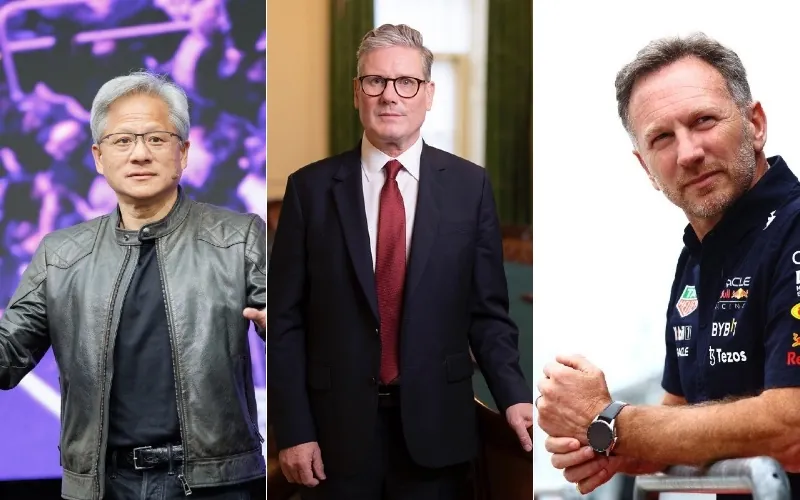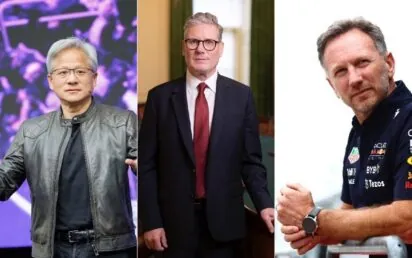London Tech Week commenced yesterday, with thousands flocking to see big names discuss the tech ecosystem in the UK.
The capital, which is rapidly becoming a global leader in the tech scene, played host to standout speakers, including Prime Minister Sir Keir Starmer and Nvidia CEO Jensen Huang.
The event will continue throughout the week. BusinessCloud looks at some of the highlights from keynote speakers on day one.
From years of chaos to stability
Starmer opened the convention by making several announcements, and highlighting the fact that we as a country need to embrace AI.
“We have to recognise that for many people, they see AI and tech as transformative – something that’s going to do so much,” he said.
“And every time we say ‘over five years or ten years’, everybody says to me ‘it’s going to be more like five years or three years’. We’re going to bring about great change in so many aspects of our lives. In health, I’ve seen for myself the incredible contribution that tech and AI can make.
“I was in a hospital up in the Midlands, talking to consultants who deal with strokes. They showed me the equipment and techniques that they are using – using AI to isolate where the clot is in the brain in a micro-second of the time it would have taken otherwise. Brilliantly saving people’s lives.
“So whether it’s health or other sectors, it’s hugely transformative what can be done here.”
Starmer remarked that tech has also transformed the world’s approach to global issues – citing the war in Ukraine as an example.
He explained: “Over the last three years or more, during this awful conflict in Ukraine – I’ve been back to Ukraine on a number of occasions in that period to have in-depth conversations with President Zelensky to make sure our support is in the right place.
“But I was really struck, on the trip before last – probably about six or seven weeks ago – by the extent to which technology and AI are now having a direct impact in that conflict.
“In three years of conflict, the way that war is being fought has changed profoundly.”
The Prime Minister, who announced a £187m skills programme yesterday to help young people ready themselves for the jobs of the future, added: “The signal I want to send is this: a Britain that, after years of chaos, is a stable partner for investment.
“A Britain that believes the future should be shaped by our values. And that in this volatile world, is proud, unashamed, open for business.”
The Labour leader also confirmed extra funding to scale up compute power, committing an extra £1bn to that cause.
“You know how important that is – a huge increase in the size of Britain’s AI engine. It means we can be an AI maker, not just an AI taker,” he said on the topic.
“More importantly, it means we have the digital infrastructure we need to make sure AI improves our public services. Because we do have a defining mission in that plan = a responsibility, if you like – to harness this unprecedented opportunity and use it to improve the lives of working people.
“This is a shared mission. We’re a mission-driven government. But this is a shared mission. Because social fear I was talking about a moment ago – trust me, I think that is the challenge for adoption.
“It’s a far greater challenge than the regulatory barrier, although that can be a challenge too. But it’s an area where government can help – where we can do our bit in this partnership.”
Goldilocks circumstance
Nvidia CEO Huang was full of praise for the ‘launchpad for growth’ which the UK has created.
He claimed that the country is in a “Goldilocks circumstance” and said it has “one of the richest AI communities anywhere on the planet”.
“(The) UK has the deepest thinkers, the best universities – Oxford, Cambridge, Imperial College.
“Amazing startups – DeepMind, I mentioned Wave and Synthesia, ElevenLabs and incredible thinkers in computer science. And of course, Nvidia wants a piece of this.
“It is the third largest AI venture capital investment anywhere in the world. Of course, the largest of the two, the United States and China, is fairly obvious, but the UK is the largest AI investment area anywhere else in the world.
“And so between these two ideas that you’re rich with great computer scientists and it’s a fantastic place for VCs to invest, the ecosystem is really perfect for takeoff. It’s just missing one thing, it is surprising.
“This is the largest AI ecosystem in the world without its own infrastructure, which is the reason why we’re talking about it so much.
“It is the reason why the Prime Minister’s announcement of investing in computing is such a big deal for you.”
Push for a greener Formula One
Red Bull team principal Christian Horner also spoke at the landmark event.
In an interview he discussed how technology is hugely impacting Formula One in 2025 and touched on the push for a more sustainable future for the sport.
“Technology is Formula One,” he said. “We just rely on technology across the entire sport. So of course, we have a huge amount of technical partnerships.
“It’s really exciting. I mean, we’re just scratching at the surface with AI at the moment, but through the partnerships we have with – for example – Oracle, we’re looking at how can we use it from a regulatory point of view.
“We’re searching for how it can help us within the set of regulations and parameters that we have in developing these cars and engines.
“Formula One, as a technology, harbors some of the brightest engineers in the world involved in the sport. So the regulations have driven us towards a 50/50 split in between electrification and combustion with fully sustainable fuel for next year, and the efficiencies that are being achieved are quite outstanding.
“So obviously for carbon free emissions as well. It’s great that Formula One is really driving and pushing this technology.”


